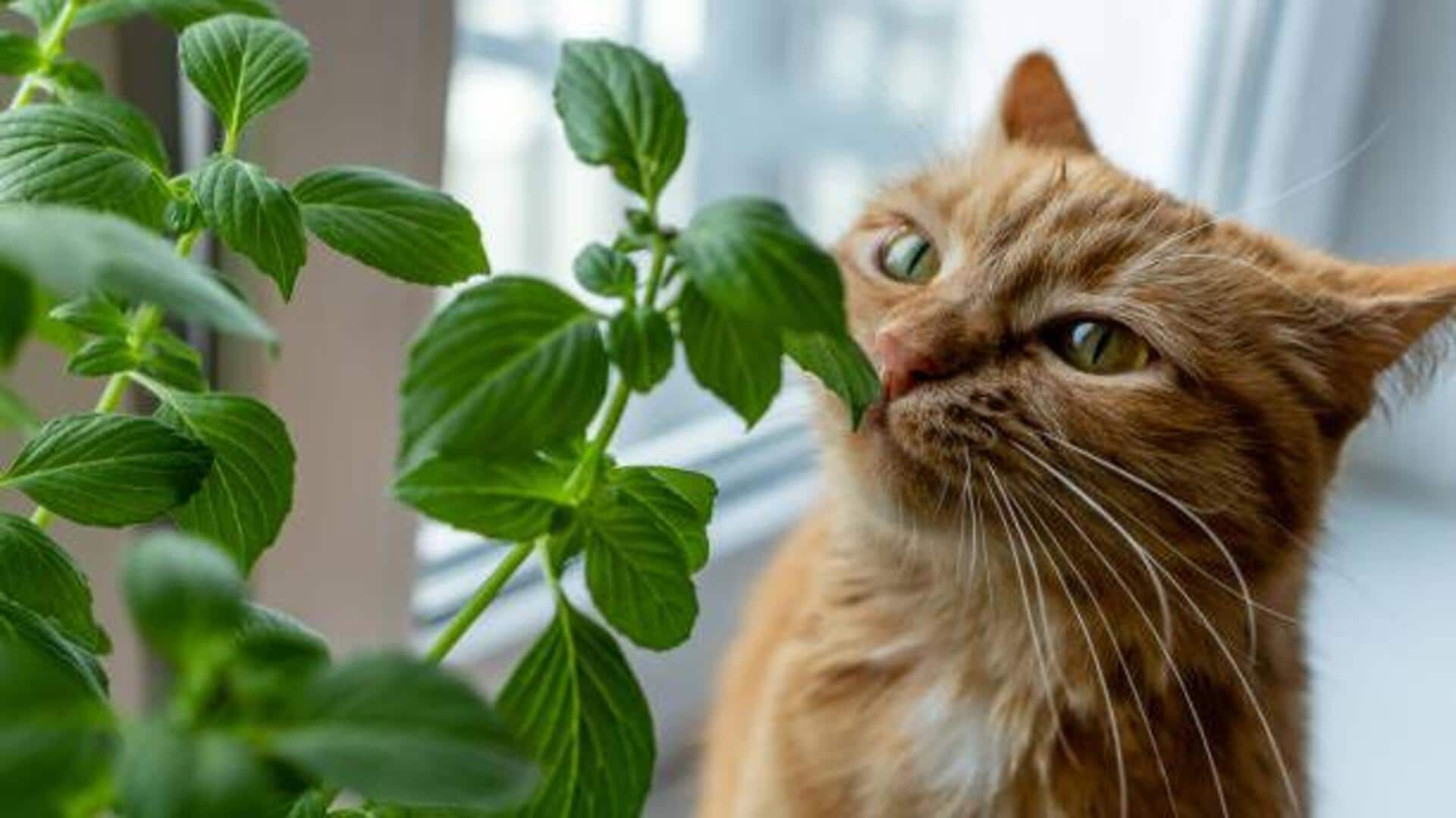
How to maintain pet-friendly houseplants
What's the story
Caring for houseplants can be extremely fulfilling, especially if you have pets at home. However, it is important to ensure that your plants are safe for your furry friends. Some plants can be toxic for animals, which is why you need to pick the right ones and care for them properly. Here are five practical tips to help you care for pet-friendly houseplants.
Tip 1
Choose non-toxic plants
Choosing non-toxic plants is the first step towards making your home pet-friendly. Spider plants, Boston ferns, and bamboo palms are some of the most popular options. They are not just safe but also easy to maintain. Always research or consult with a professional before bringing in any new plant home to ensure it poses no risk to your pets.
Tip 2
Proper placement matters
The placement of your houseplants can make a world of difference to their health and safety around pets. Keep plants out of reach from curious paws by placing them on high shelves or using hanging planters. Ensure they receive adequate sunlight without being easily accessible to pets who might chew on leaves or dig in the soil.
Tip 3
Regular watering schedule
Maintaining a consistent watering schedule is vital for healthy plant growth. Overwatering or underwatering can stress the plant, making it more susceptible to disease and pests which could harm the plant and potentially affect indoor air quality for pets. Check soil moisture regularly and adjust watering frequency based on seasonal changes.
Tip 4
Use safe fertilizers
When fertilizing houseplants, choose organic or pet-safe fertilizers to steer clear of any harmful chemicals that could impact your animals if ingested accidentally. Adhere closely to package instructions on how much and how often to apply to avoid over-fertilization, which can damage roots and decrease plant vitality.
Tip 5
Monitor plant health regularly
Regularly checking your houseplants can help catch the early signs of disease or pest infestations that could spread quickly if left unchecked. Keep an eye out for discolored leaves, unusual spots, or wilting as signs of potential issues requiring attention promptly before they spiral out of control, impacting both plant health and the quality of your indoor environment for pets.